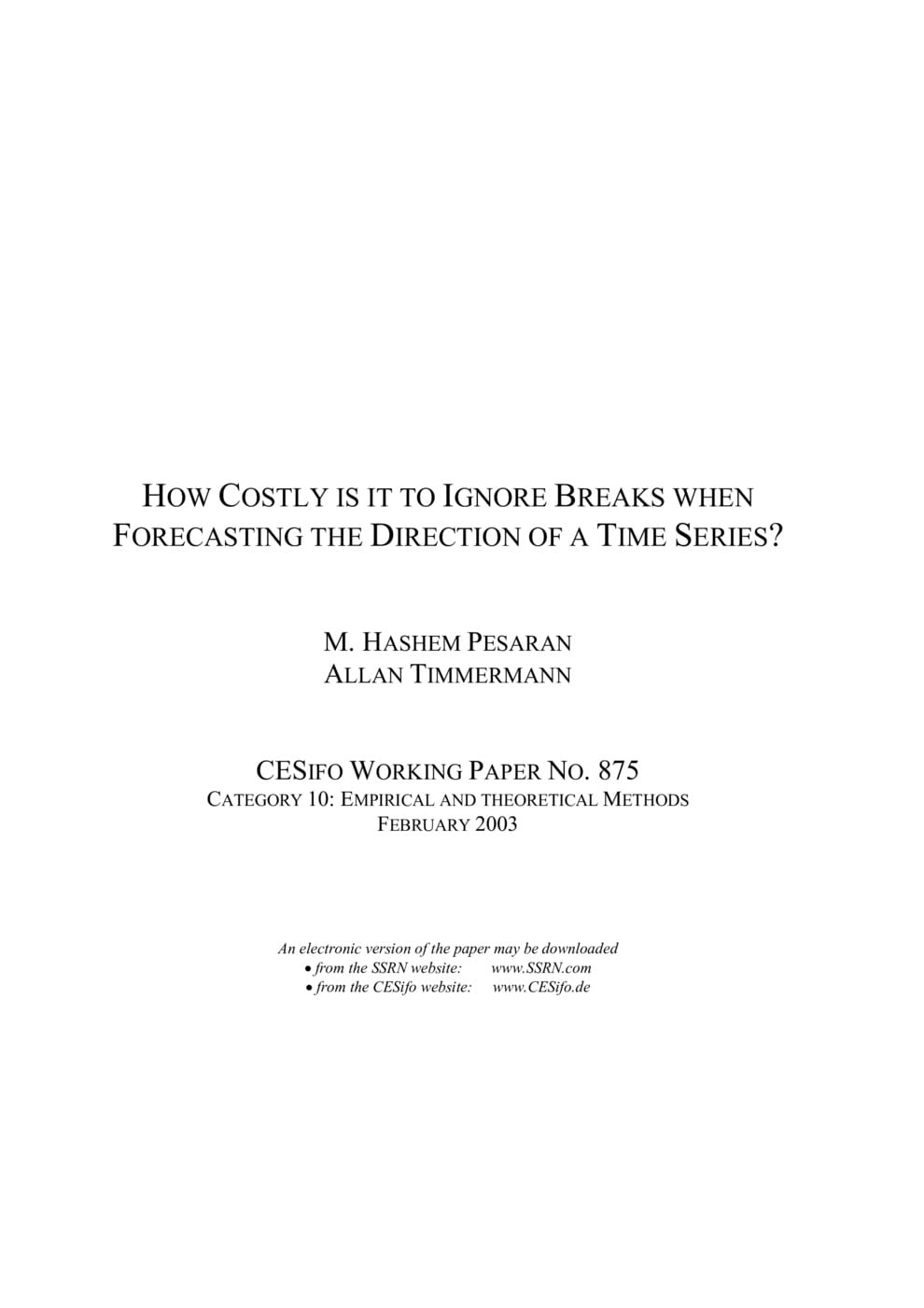How Costly is it to Ignore Breaks when Forecasting the Direction of a Time Series?
CESifo, Munich, 2003
CESifo Working Paper No. 875

Empirical evidence suggests that many macroeconomic and financial time series are subject to occasional structural breaks. In this paper we present analytical results quantifying the effects of such breaks on the correlation between the forecast and the realization and on the ability to forecast the sign or direction of a time-series that is subject to breaks. Our results suggest that it can be very costly to ignore breaks. Forecasting approaches that condition on the most recent break are likely to perform better over unconditional approaches that use expanding or rolling estimation windows provided that the break is reasonably large.